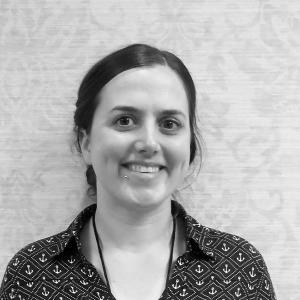Meaghan Gass

Collecting Stories at the National Working Waterfronts and Waterways Symposium 2018
Collecting Stories at the National Working Waterfronts and Waterways Symposium 2018 is a project of Maine Sea Grant, College of the Atlantic, the Island Institute, and the National Working Waterfront Network.
National Capital Contracting
Meaghan Gass serves as an extension educator with Michigan Sea Grant, a collaborative effort that fosters economic growth and protects Michigan’s coastal, Great Lakes resources through education, research, and outreach. In her role, Gass is deeply involved in the Great Lakes region, particularly focusing on the working waterfronts. Her work is driven by a commitment to the understanding and stewardship of freshwater resources. Gass's professional journey is marked by her dedication to educating and engaging various stakeholders within the community to address environmental concerns and promote sustainable practices. Her expertise and efforts are directed towards tackling the multifaceted challenges that face the Great Lakes' working waterfronts while also celebrating the successes that come with effective community engagement and resource management. Gass's personal connection to the waterfronts and her interactions with diverse groups of stakeholders underscore her comprehensive approach to her work in environmental education and conservation.
Scope and Content Note
The interview with Meaghan Gass provides an in-depth look at the critical issues affecting the working waterfront in the Great Lakes region, particularly in the Saginaw Bay area. Meaghan Gass speaks about her projects on extreme floods and her passion for place-based stewardship education. She highlights the United States’ dependence on the Great Lakes and the interconnectedness of waterfronts. Her work currently includes projects such as reef restoration, invasive species removal, fisheries, and water quality in the Saganon Bay region of Michigan. Gass discusses the paramount concerns of water quality, fishery restoration, and the impact of invasive species on the local ecosystem. She highlights the efforts of the Michigan Department of Natural Resources in managing the fishery. She suggests that resources from the National Working Waterfront Network could be instrumental in addressing these environmental challenges. The content of the interview also delves into Gass's personal experiences and reflections on her role in fostering community engagement and education regarding the working waterfront. She shares insights into the types of stakeholders she collaborates with and the importance of their involvement in environmental stewardship. Additionally, Gass touches upon the value of understanding hidden identities within communities, referencing a session she found beneficial. She advocates for the creation of a guide to facilitate similar discussions in local communities, indicating a proactive approach to inclusive and effective communication in environmental education and conservation efforts. The interview encapsulates Gass's comprehensive understanding of the issues and her proactive strategies for community involvement and resource management.
Please Note: The oral histories in this collection are protected by copyright and have been created for educational, research and personal use as described by the Fair Use Doctrine in the U.S. Copyright law. Please reach out Voices@noaa.gov to let us know how these interviews are being used in your research, project, exhibit, etc. The Voices staff can help provide other useful resources related to your inquiry.
The NOAA mission is to understand and predict changes in climate, weather, oceans, and coasts, to share that knowledge and information with others, and to conserve and manage coastal and marine ecosystems and resources. The Voices Oral History Archives offers public access to a wide range of accounts, including historical materials that are products of their particular times, and may contain offensive language or negative stereotypes.
Voices Oral History Archives does not verify the accuracy of materials submitted to us. The opinions expressed in the interviews are those of the interviewee only. The interviews here have been made available to the public only after the interviewer has confirmed that they have obtained consent.
